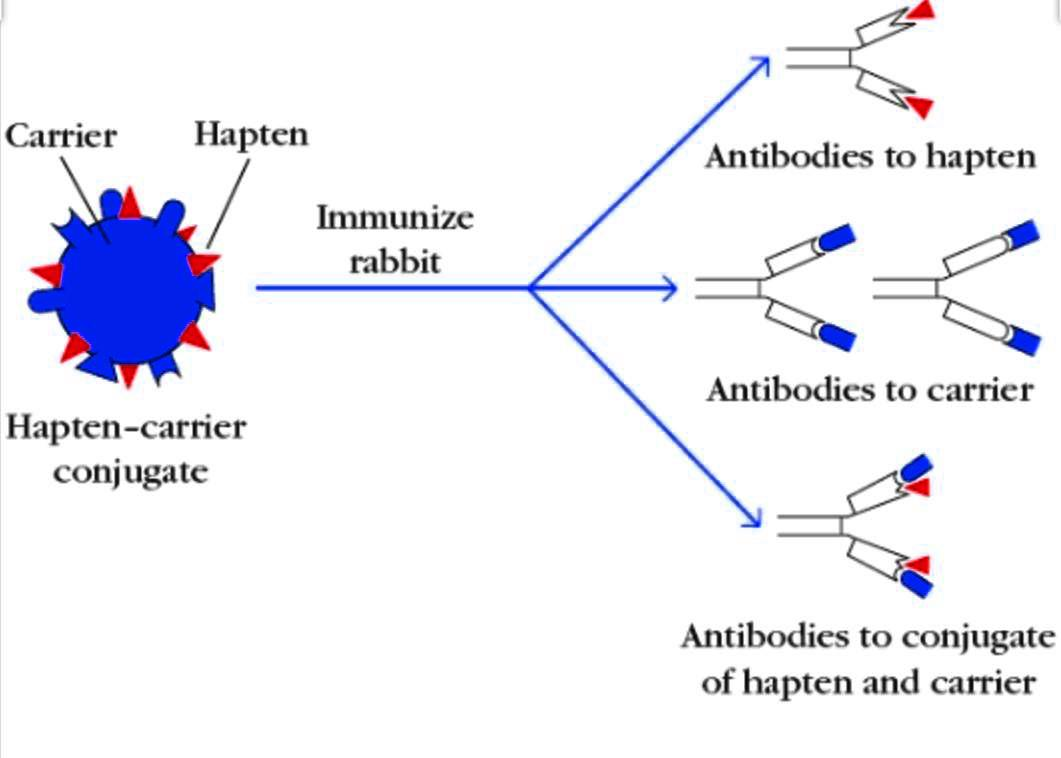Question
Question: The chemical released by B cells after recognition of hapten-carrier complex is known as- A. Antib...
The chemical released by B cells after recognition of hapten-carrier complex is known as-
A. Antibodies
B. Lymphokines
C. Antigen
D. All of the above
Solution
B cells are mature lymphocyte cells that act with the antigens.
Antigens are those substances that act with the antibodies produced in the body. There are many types of antigens. Hapten can only act with antibodies but cannot induce the production of antibodies.
Complete answer:
1. Antigens are macromolecules. These can be protein, nucleic acid, nucleoprotein, lipoprotein, glycoprotein, or polysaccharide. B-cells act with such antigens.
2. A hapten is also called partial antigen because it has not the character of immunogenicity. Immunogenicity is called the ability of an antigen to induce antibody production in the body or proliferation of T-cells or both. Hapten lacks this character but when it binds with a carrier complex inside the body it can induce antibody production by B cells.
3. B-cells secrete antibodies. Antibodies are glycoprotein in chemical nature. These are made by 4 chains of protein. On the membrane of B cells, more than 100000 molecules of antibodies are found that act with the antigens. Antibodies act as adaptor molecules for antigens.

4. B cells can recognize the antigen by its shape. Some specific regions of antigen are responsible for antibody production called an epitope. The number of epitopes on an antigen is called valency. Antigens can be mono, bi, or multivalent. Hapten has less number of epitopes.
So the correct answer is option A) that is Antibodies.
Note: Maturation of B cells takes place in the bone marrow. B cells die after 1-2 weeks. B cells divide and form plasma cells and memory cells.
Plasma cells are a factory of protein. It produces 2000 types of antibodies during its lifespan.
